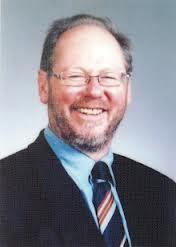 |
Bob McKay,
|
Abstract:
A typical evolutionary system acts in a set-and-forget fashion: parameters
and settings are specified, then the system is run independently of the
user. However in many cases, the results are unacceptable to the user:
parameter bounds are unacceptable to the user, genetic programming
generates solutions of unacceptable form, etc. So the system in fact
operates in a loop: when the user deems solutions unacceptable, this
additional knowledge is added to the system, usually as a constraint, and
the system is re-run. This process is repeated until an acceptable solution
is obtained.
This process is often successful, acting to clarify the user's knowledge
about acceptable solutions. But it incorporates a subtle problem: only the
constraints that are in fact violated are recorded as explicit user biases.
The user may well have additional biases that would have been specified if
necessary, but these are not available for inspection.
This talk will explore the issue of user biases in evolutionary
computation, with particular attention to previous experience in genetic
algorithms and genetic programming, and planned extensions to interactive
evolutionary computation.
Bio Sketch:
Bob McKay was originally trained as a pure mathematician in the Australian National University and the University of Bristol. He is currently a professor at the Dept of Computer Science and Engineering, College of Engineering, Seoul National University. He's a member of the Structural Complexity Laboratory, researching Genetic Programming and related fields. Dr. McKay obtained his BSc Hons in Pure Mathematics from Australian National University and his PhD in Theory of Computation from Bristol. He's been the keynote/plenary/invited speakers in many academic conferences as well as playing major roles in various international conferences. Dr. McKay has been researching the field of evolutionary computation since the 1990s, at first in the University of New South Wales and subsequently in Seoul National University. He has participated in IES symposia since the first in Australia in 1997. He is an Associate Editor of IEEE Trans Evolutionary Computation, Editorial Board member of Genetic Programming and Evolvable Machines (Springer), and Associate Editor of KES Journal (IOS Press).